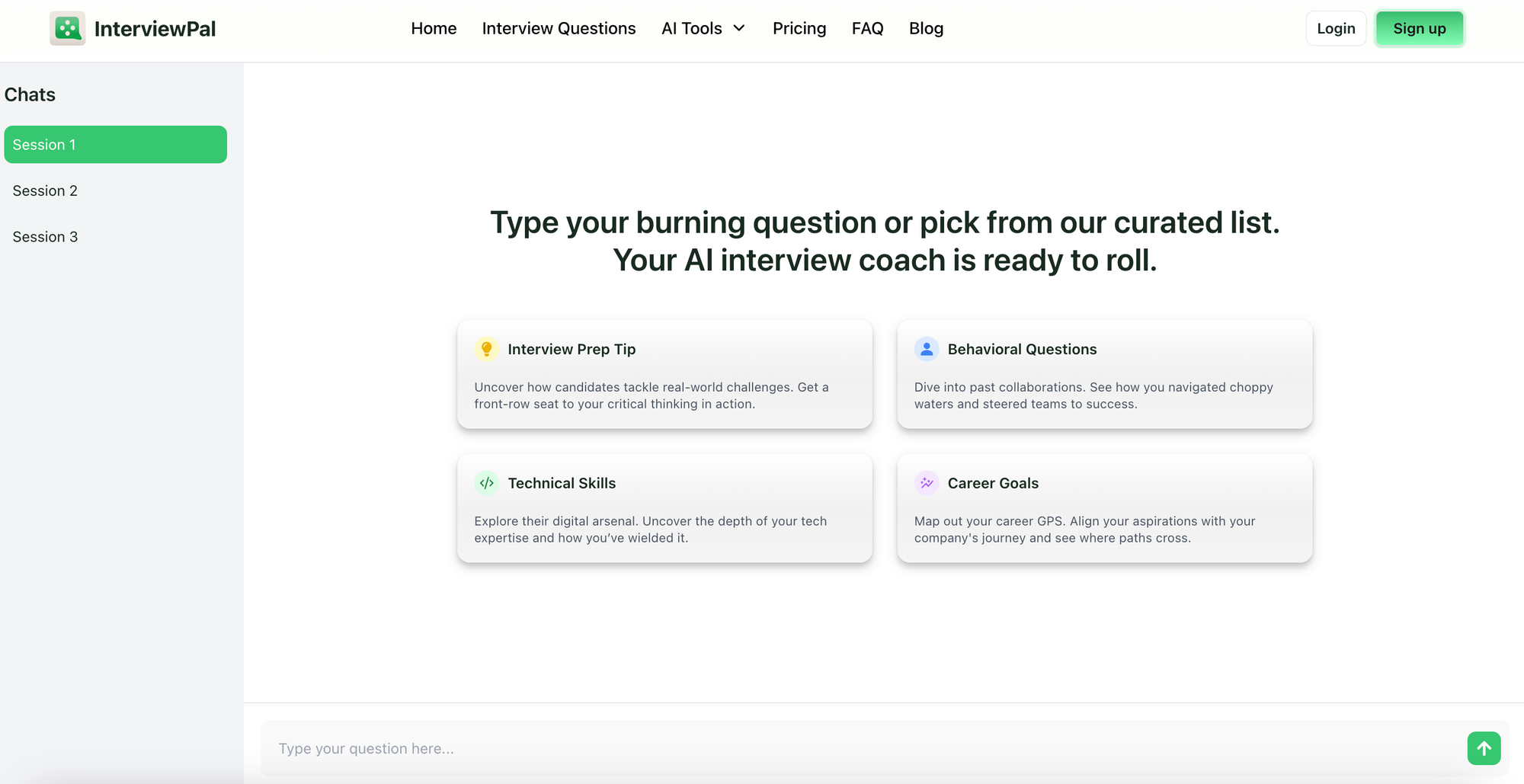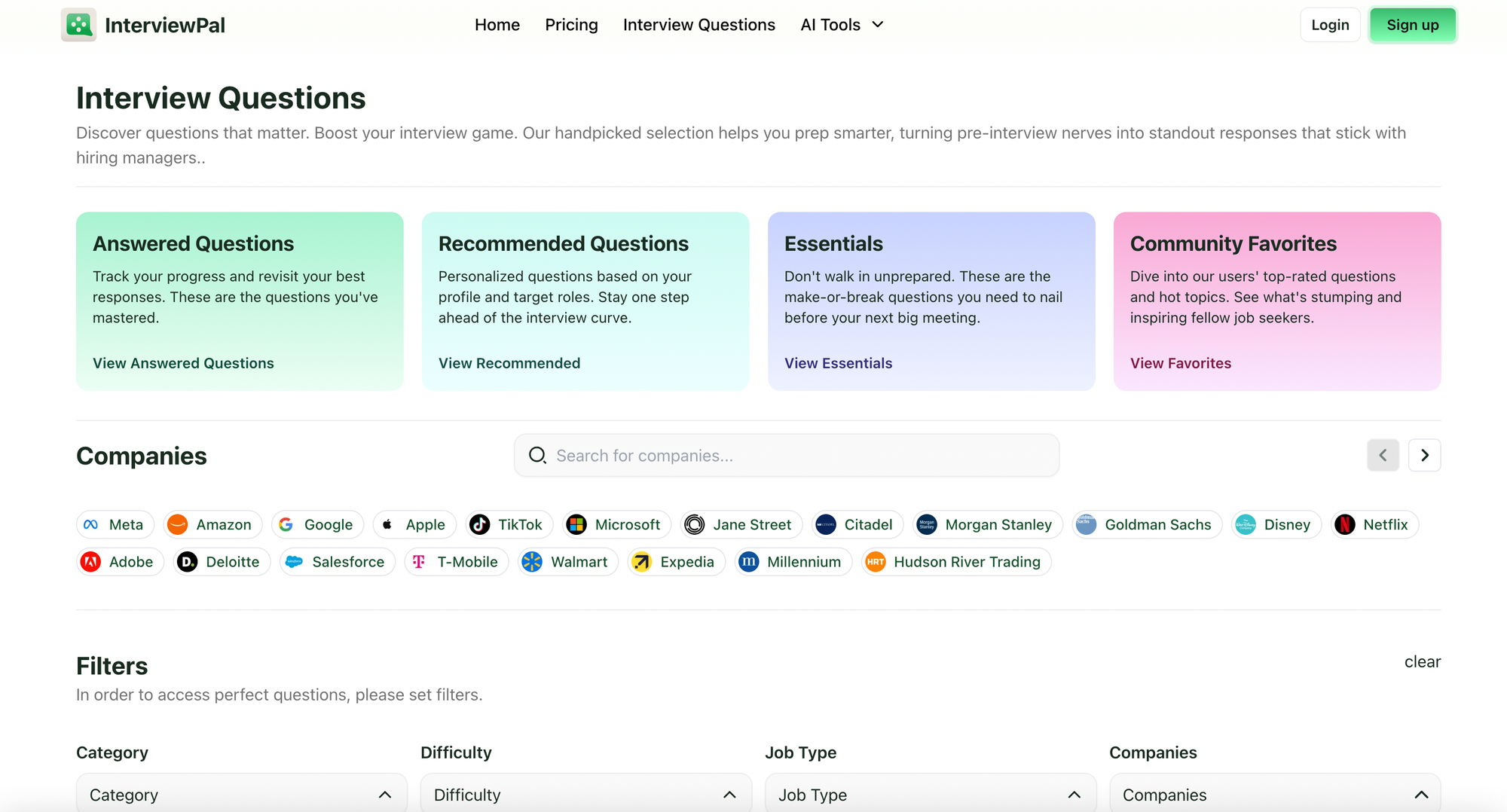The way we prepare for interviews is changing. And it’s not just an incremental change; it’s a shift from one model to another. For years, interview prep was largely a personal process. You’d rehearse with friends, practice in front of a mirror, maybe even hire a coach if you were serious. But that model has limits. It’s slow, inconsistent, and only as good as the person giving you feedback. AI interview prep is something entirely different, and it’s going to replace traditional methods for the same reasons that calculators replaced slide rules. It’s not just faster; it’s better in fundamental ways.
Here are ten reasons why AI-powered interview prep isn’t just a trend but the future.
1. AI Provides Consistent, Objective Feedback
One of the biggest flaws with traditional interview prep is that it depends on human feedback, which is inherently subjective. A coach might tell you that your answer is “too vague,” while a friend says it’s “just right.” It’s hard to know who to believe. IAI, on the other hand, provides feedback based on patterns and data, not opinion. If it tells you that you tend to ramble or speak too quickly, it’s not guessing; it’s basing that feedback on hard numbers.
For instance, an AI-powered tool could analyze the speed of your speech, the clarity of your language, and the structure of your response. It’s the difference between “I think you could be clearer” and “Your response clarity is at 70%, with opportunities to simplify phrases and reduce filler words.”
2. It Learns from Millions of Interviews
Human coaches can give great advice based on their experience, but even the best coach is limited by the number of interviews they’ve personally witnessed. AI doesn’t have that limitation. A well-trained AI recruitment model can learn from thousands or even millions of interviews, spotting patterns and best practices that a single human could never observe in one lifetime.
The sheer volume of data AI has access to allows it to pinpoint exactly what makes an answer effective, whether it’s for a “tell me about yourself” question or a complex behavioral prompt. And because it learns continuously, its advice only gets better. Traditional coaching simply can’t scale to this level.
3. Real-Time, Data-Driven Practice Sessions
One of the biggest advantages of AI is that it operates in real-time. In a traditional setting, you might have to wait hours or even days to get feedback from a coach. With Interview AI, you can get instant, data-driven feedback the moment you finish answering a question.
This immediate feedback loop is transformative. Imagine practicing an answer and being told right then and there that your tone was too formal or that you drifted off-topic in the middle. You don’t have to guess or wait; you can correct your approach on the spot. This kind of immediate, actionable feedback allows for much faster progress than traditional coaching ever could.
4. AI Removes the Pressure of Judgment
One underrated benefit of AI interview prep is that it’s a judgment-free zone. When practicing with a coach or friend, there’s always a bit of pressure—you’re aware they’re listening, and you don’t want to sound foolish. This pressure often makes people freeze up or give overly rehearsed answers, which doesn’t help in the long run.
With AI, there’s none of that. You can practice as many times as you need, stumble through awkward answers, or even try completely outlandish approaches without worrying about being judged. This freedom allows for experimentation, which often leads to better, more authentic answers.

5. It’s Available Anytime, Anywhere
Traditional interview prep is constrained by time and place. You have to schedule sessions with a coach or meet up with a friend, which often isn’t convenient. AI-powered tools, on the other hand, are available whenever you need them. If you want to practice at midnight or during a lunch break, you can.
This flexibility isn’t just convenient; it’s transformative. It allows candidates to practice more often, which is essential for building confidence and refining answers. When interview prep becomes as accessible as checking your email, it fundamentally changes the way people prepare.
6. AI Can Adapt to Your Unique Needs
One of the most impressive things about AI is its ability to personalize. A good AI interview tool doesn’t just provide generic advice; it adapts to your specific strengths and weaknesses. If it detects that you have a tendency to go off-topic, it will help you focus. If it notices that you’re great at technical questions but struggle with behavioral ones, it will adjust its prompts to help you improve.
In other words, AI isn’t just coaching you—it’s coaching you based on who you are. Traditional methods rarely offer this level of personalization because it’s simply too time-consuming. With AI, customization is baked into the system.
7. AI Can Simulate Realistic, High-Stakes Scenarios
One of the challenges of interview prep is that practicing with friends or even a coach can feel artificial. It’s not the same as sitting across from a stranger who holds your future in their hands. AI interview tools are capable of simulating high-pressure scenarios that mimic real interviews.
Some AI platforms can even replicate the types of questions and formats used by specific companies, like Google or Amazon, helping you prepare in a way that’s highly relevant to your goals. This realism makes AI interview prep far more effective than traditional role-playing exercises, which can sometimes feel like play-acting.
8. It Uses Advanced Analytics to Measure Progress
When practicing for an interview traditionally, it’s hard to measure progress objectively. Sure, you might feel a bit more confident after each session, but that’s subjective. AI interview prep tools, however, track a range of metrics, from answer clarity and speaking pace to filler words and response length.
This data allows you to see measurable improvement over time. You’re not just guessing whether you’re getting better; you can see it in the numbers. And by tracking your progress, AI can highlight specific areas where you’ve improved and areas that still need work, offering a level of insight that traditional methods simply can’t match.
9. Cost-Effectiveness: High-Quality Prep Without Breaking the Bank
Let’s talk about cost. Traditional interview coaching can be expensive—very expensive, in fact. High-quality coaches often charge hundreds of dollars per hour, which isn’t feasible for everyone. AI-powered interview tools, on the other hand, offer an affordable alternative. They provide high-quality feedback at a fraction of the cost, making professional-level preparation accessible to a wider range of candidates.
This affordability is significant. It means that more people, regardless of their financial background, can access top-tier interview preparation. When you democratize access to tools that were once exclusive, you level the playing field and allow talent to shine based on ability, not privilege.
10. The Future of AI Interview Prep: Continuous Learning and Adaptation
One of the most exciting aspects of AI interview prep is that it’s still evolving. The technology is improving constantly, and as more people use it, the AI interview systems learn and adapt, getting better with each interaction. Imagine an AI that can give you feedback not just based on generic data but on the latest trends in your industry, or even the specific types of answers that worked well for candidates who recently got hired at top companies.
This is where AI interview prep starts to transcend traditional methods in a way that’s almost unrecognizable. AI can evolve with the times, adjusting to shifts in the job market, new company preferences, and even economic conditions. This is something no human coach, no matter how experienced, could ever match. The future of AI interview prep isn’t just about replacing traditional methods; it’s about surpassing them in ways we’re only beginning to understand.
Recommended Read: Why You Need an Interview Coach for Tech Company Interviews — And Why AI Might Be the Better Option
The Inevitable Shift
The idea that AI interview prep will replace traditional methods isn’t speculative; it’s inevitable. AI offers a level of precision, consistency, and scalability that human-based methods simply can’t match. The very things that make traditional coaching valuable—insight, adaptability, personalization—are now being done by AI, and done better.
If you’re serious about interview prep, it’s time to look beyond the old ways. The future isn’t just more practice with a friend or a few sessions with a coach. The future is real-time feedback, data-driven insights, and intelligent systems that learn and adapt with you. Tools like InterviewPal are already leading the charge, offering candidates AI-driven feedback that’s accessible, affordable, and endlessly adaptable.
In the end, AI interview prep isn’t just another tool in the toolkit. It’s the tool that will define the future of career preparation. Just as calculators replaced slide rules and Google replaced encyclopedias, AI will replace traditional interview prep—not because it’s faster or cheaper, but because it’s better.
If you’re serious about landing a job, it makes sense to use every tool available, especially the ones that give you an edge. AI Interview Tools like Resume AI aren’t just for fixing typos—they actually make your CV stand out in a way that gets noticed. Job AI goes a step further by matching you to roles based on what you’re really good at, not just what’s on your resume. Then there’s Create Your Own Question for practicing those tricky areas that tend to trip people up. And when you’re ready to go into an interview, Ask Away AI can generate questions directly from the job description, letting you ask things that actually matter. AI tools like these don’t just make the process smoother; they make you better prepared and more confident.



